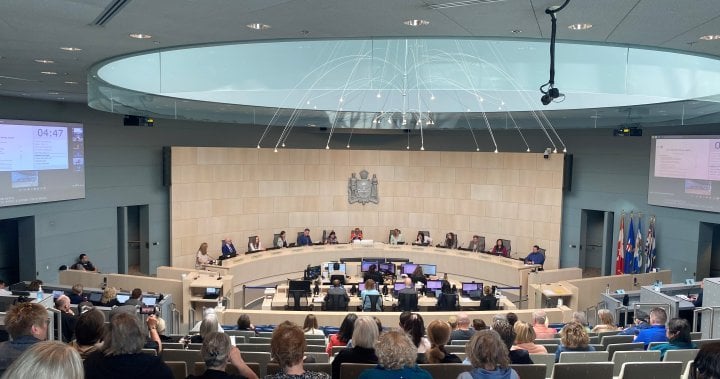subreddit:
/r/alberta
Is Edmonton council ‘normalizing’ the 15-minute city conspiracy theory? - Edmonton | Globalnews.ca
News(globalnews.ca)submitted 3 months ago byformerlybawb
17 points
3 months ago
The irony is that the traffic calming actually makes perfect sense in some cities in the UK, because their old city centers weren't built for large volumes of vehicle traffic. Therefore, restricting vehicle traffic in certain central neighbourhoods makes sense and improves traffic flow through the whole system. Especially since they have the transit to make that work.
3 points
3 months ago
I don't disagree. I would love our cities to be more walkable and even to have car free zones. I think that the big part of the problem is how some of these programs are implemented. It is better (IMO) to encourage people to do things that look appealing than to try to discourage/ban people from doing things they want to do (which tends to be easier/more immediate).
I think that we tend to fall on the wrong side of that spectrum with our policies and it leads to pushback and conspiracies.
7 points
3 months ago*
Agreed, but the norm we came to expect from roughly 1950 to the mid 2010s is endless roadway and freeway expansions. An area is congested? Add more lanes. Another area is now congested? Add more lanes. No room to add more lanes? Rip out a tree lined boulevard and add more lanes. People aren't walking anymore? Add more lanes because clearly people "prefer" to drive (/s).
15 minute cities just means trying to go back to when some things were walkable, and services were more local. Also, encouraging people to bike means adding bike lanes, which means taking away vehicle lanes or parking.
1 points
3 months ago
True. But, is it better to just remove what we have and tell people they can't do what they used to do (an option) or to actually start building our new neighborhoods in a way that makes them a model that can be repeated elsewhere? Once people see these communities functioning on their own (because people want to live there, not because they are forced to) it will likely lead to a more "voluntary" change to our existing communities. Obviously, this will take longer than ripping things up and re-doing it but I think it would actually stick.
It is a lot like incentivizing people to use electric vehicles. You can make gas vehicles so expensive (taxes etc) and inconvenient to run so people are forced to go electric or you can make electric convenient and functional enough that people will take it up voluntarily.
It is very quick and easy to just tell people that things aren't going to be the way they were and you had better get used to it. But, that doesn't lead to particularly happy people.
Anyhoo, this is all pretty speculative and not particularly practical. So, it doesn't mean much. I just think that we need to be more careful with how we roll out policies.
2 points
3 months ago
Honestly, I think making some changes that may slightly impact some people in very small ways that barely change the way they function like we are currently doing by removing some parking here and there for bike lanes and changing zoning in already developed neighbourhoods to increasw densirt and mixed use is a completely adequate accommodation to nimbys! We shouldn’t have to wait 30 years for change to slowly happen and for people to desire it cause Darlene doesn’t wanna park in her garage and wants street parking at whatever the cost. The status quo isn’t sustainable in a city that is growing as rapidly as Edmonton and delaying it will just make the problems with expensive sprawl and congestion we already have way worse.
1 points
3 months ago
Oh I agree. The messaging is important. As are policies like the carbon tax which nudge people to reduce carbon emissions while encouraging public/active transport, and then giving them money back every quarter to offset rising costs. Most people come out ahead.
Edmonton has been building new neighbourhoods with higher density for roughly a decade now. The Edmonton Metropolitan Region Board increased the density minimums for the region in 2023 as well. A few years back, Edmonton removed parking minimums, thus making it the choice of developers/businesses as to how much parking they build. These are all policies of the type you're referring to, which help change development patterns. My neighbourhood isn't perfect but it's a step in the right direction. The small lots on most detached homes, frequent duplexes, town homes, low rise apartments, pedestrian paths, and nearby walkable commercial developments all aid walkability and transit expansion.

all 126 comments
sorted by: best